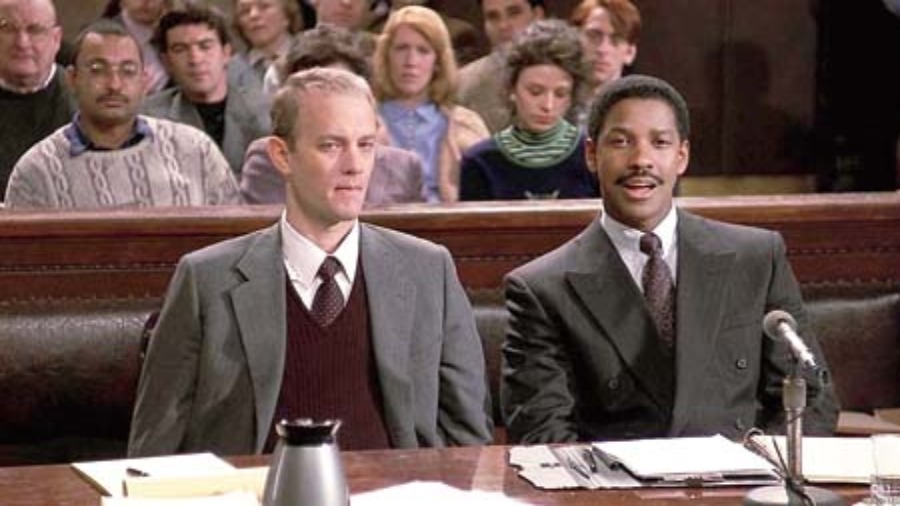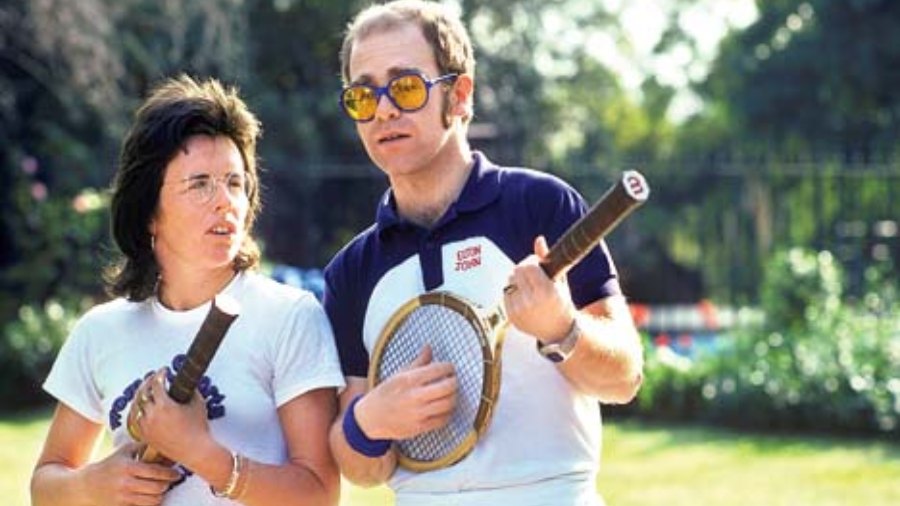It’s the last day of the LGBT History Month — started in 1994 by Rodney Wilson, a Missouri-based teacher — and Elton John’s Philadelphia Freedom is blaring from my speakers, like it did two years ago when I had visited the city for a few days or like it did the first time I heard it in the mid-1980s.
The song, which he wrote with Bernie Taupin in 1975, remains an important one though not an often-played number on radio stations in India. It reminds us of the need of education around historic inequalities and oppression and that we should look beyond the LGBT History Month.
Having said that, it was a special month personally as my 10-year-old daughter wanted to know about music and films that somehow get identified with LGBTQ communities as she is reading, at breakneck speed, the books of Rick Riordan and coming across characters like Nico di Angelo and Will Solace. In fact, she has a better understanding of LGBTQ communities than I had at her age.

A still from Philadelphia
So we decided to listen to Elton John’s Greatest Hits Volume II from 1977, which also featured Sorry Seems to Be the Hardest Word and Someone Saved My Life Tonight. If we can look past the catchy Philadelphia freedom/ I lo-o-ove you/ Yes I do, there is a lot of history attached to this song as Elton John wrote it for tennis star Billie Jean King. “At the time, we were making so many albums, but we liked to make separate singles, too. I said to Bernie, ‘Will you write a song called Philadelphia Freedom for me?’”
King is a friend of the singer and she had the team Philadelphia Freedoms at the start of World Team Tennis. While writing the song he drew inspiration of from King’s pioneering mixed-gender tennis team with a melody that celebrated the great Philly soul sounds of Gamble and Huff. When I first heard it in the mid-80s, I thought it was about Philadelphia but no, there’s so much more to it.
Some years ago, King spoke about the song and how she enjoys this song. “I played for Philadelphia my first year, 1974. I had met Elton John in ’73. Elton started to come out to the Freedom matches and sit on the bench. And we made sure he had a uniform, and he was like our cheerleader, our surrogate coach—and he just loved it. When he wasn’t touring, he’d come. He loved tennis. So one time we’re going to one of his concerts, and we’re sitting in the backseat of a car, and he goes, ‘I want to write a song for you.’”
Listening to the song (and a few more from the Greatest Hits selection), an order was placed on Amazon.in for books on Billie Jean King (All In for me and a children’s biography for her) as the little one wants to learn about her life and the moment the tennis legend was publicly outed in 1981 (“Unless somebody’s ready, they shouldn’t be outed,” she had said in a 2017 interview).
Of course, Philadelphia Freedom soon turned towards the film Philadelphia (yup, because of the title), starring Tom Hanks, who also happens to be my daughter’s second favourite actor (Tom Holland takes the top spot) because of films like A Beautiful Day in the Neighborhood and Big. Like Denzel Washington had once said about the film: “This is not a movie about AIDS, really. It’s an emotional self-examination.”
At the end of the film, though she didn’t reach out for a handkerchief but it certainly stunned her into silence for quite a few minutes. So what if LGBT History Month is over? It’s always time to speak about how members of the community are misunderstood. Since the word ‘Philadelphia’ rang through the article, if you are ever in the actual city, visit the Arch Street Meeting House, the Old City, The Liberty Bell Center and the Gaybourhood. It’s the city of brotherly love and, of course, freedom.
